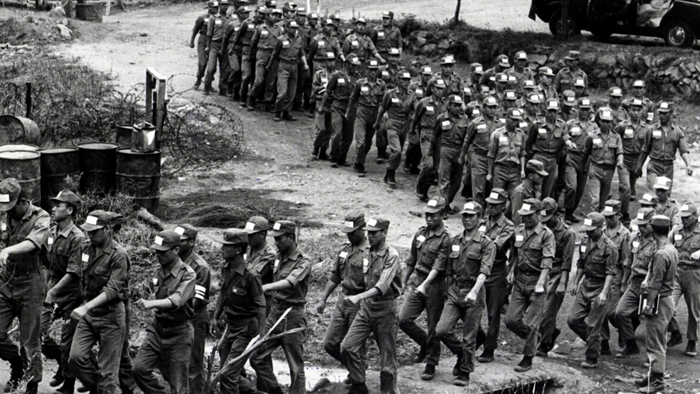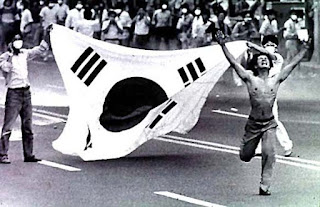Human Rights Violation in Korea: A Closer Look at Samcheong Re-education Camps
Human Rights Violation in Korea: A Closer Look at Samcheong Re-education Camps
In the early 1980s, South Korea was under the rule of an authoritarian regime led by Chun Doo-hwan. During this time, there were many human rights abuses and violations. One such example is the infamous Samcheong re-education camps.
Background and Purpose
The Samcheong re-education camps were established as a part of the government's social purification campaign. The regime aimed to crack down on what they considered "social evils", including political dissent, as well as various petty crimes and socially undesirable behavior.
The Victims
The victims of the Samcheong re-education camps were diverse. Many were students, labor activists, and other individuals who were critical of the government. Others were people who were rounded up for minor offenses or what the government considered antisocial behavior. This included the homeless, vagrants, and petty criminals.
Conditions and Human Rights Violations
The conditions in the Samcheong re-education camps were harsh and inhumane. The inmates were subjected to forced labor, physical abuse, and ideological indoctrination. There are numerous accounts of beatings, torture, and other forms of mistreatment. The forced labor often involved hard physical work, and the inmates were expected to meet unrealistic quotas.
The Legal Aspects
Many of the detentions were arbitrary and lacked due process. The inmates were often detained without formal charges, and there was no legal recourse available to them. The camps operated outside the normal judicial process, and the treatment of the inmates was not in accordance with domestic or international human rights standards.
Compensation and Recognition
There have been calls for the South Korean government to recognize the abuses that occurred in the Samcheong re-education camps and provide compensation to the victims. Some former inmates have sought legal redress through the courts.
As of my last knowledge update in September 2021, the issue of official recognition and compensation is complicated and has not been fully resolved.
Conclusion
The story of the Samcheong re-education camps is a dark chapter in South Korea's history. It serves as a reminder of the importance of human rights, the rule of law, and democratic governance. For the victims and for South Korean society as a whole, acknowledging this past and working towards justice and reconciliation is vital.
Please note that this article refers to the Samcheong re-education camps and not the "Samcheong Education University," as I couldn't find any information regarding the latter. If you were referring to a different incident or institution, please clarify.
Efforts by the South Korean Government to Uncover the Truth
The Truth and Reconciliation Commission (Chairperson Kim Kwang-dong, TRC) announced on the 15th that it had decided to start investigating 398 cases, including the 'Samcheong Re-Education Camps Victim Incident', at the 54th General Assembly held at the TRC in Jung-gu, Seoul on May 10, 2023.
The TRC confirmed that the entry into the Samcheong re-education camp itself was a serious violation of human rights due to the unlawful exercise of public power, following the decision by the Supreme Court in December 2018 that Martial Law Proclamation No. 13, the legal basis for the Samcheong Re-Education Unit, was unconstitutional and void (Supreme Court's decision on December 18, 2018, 2017 Mo 107). Accordingly, the TRC had made a truth-finding decision for 152 victims of the Samcheong Education in June 2022 and February 2023, and decided to start additional investigations into 92 cases this time.
The second TRC made its first decision to start an investigation on May 27, 2021, and this is the 45th time.



Comments
Post a Comment